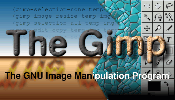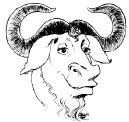 (what else?)
(what else?)

These books and all related files are published under the terms and conditions of the Design Science License. These terms and conditions allow for free copying, distribution, and/or modification of this document by the general public.
A copy of the Design Science License is included at the end of each book volume. For more information about the License, visit http://www.dsl.org/
As an open and collaboratively developed text, this book is distributed in the hope that it will be useful, but WITHOUT ANY WARRANTY; without even the implied warranty of MERCHANTABILITY or FITNESS FOR A PARTICULAR PURPOSE. See the Design Science License for more details.



| Book Volume: | Volume I - DC | Volume II - AC | Volume III - Semiconductors |
|---|---|---|---|
| Edition: | 5th | 5th | 4th |
| Last revised: | July 19, 2005 | September 22, 2005 | July 25, 2005 |



| Book Volume: | Volume IV - Digital | Volume V - Reference | Volume VI - Experiments |
|---|---|---|---|
| Edition: | 4th | 4th | 1st |
| Last revised: | June 29, 2005 | June 1, 2005 | June 29, 2005 |
Edition numbers reflect major structural changes to a book volume such as the addition of new chapters, the substantial expansion of existing chapters, or a change in markup language (source code formatting). I may also increment the edition number of a volume due to the accumulation of many smaller changes. For a volume under active revision, one edition per year is normal.
"Last revised" dates reflect non-trivial changes only. Minor changes I make such as typographical error correction and stylistic changes to the text do not warrant increments to this date. New topics added to the text, as well as any outside contributions, are the minimum change level warranting a new revision date.
Click here for a detailed changelog of all books.
Note to instructors:
My commitment to those using these texts as student resources in instructional curricula is to never delete subject matter content as the books evolve through succeeding revisions and editions. New subjects will be added, and existing subjects expanded in coverage, but I will never omit "old" subjects. My experience is that even "obsolete" subjects in electronics hold important lessons for students, and sometimes serve to catalyze creativity in new design work. Unlike publishers, who must consider the page count (printing costs) of a book, my publication costs are zero. Instructors may pattern their lesson plans around the subjects contained in this book series without being forced to change their plans as the series matures.
July 2004 -- IMPORTANT -- PLEASE READ THIS! It has come to my attention that I can no longer continue my role as project coordinator and primary author for this textbook series. My life has simply become too busy, and I lack the free time necessary to do a good job administrating this project. See goodnews and badnews for more details. Fortunately, the open-source nature of this project has led others to develop it in different directions, where it will continue to live. The best example of this to date is AllAboutCircuits.com. Please pay them a visit to see what neat things are being done with the books.
A huge thank-you to Dennis Crunkilton, who bears the distinction of being the first contributor to submit an entire chapter! Go to Karnaugh Mapping in Volume IV to see his fine work.
At a reader's suggestion, I made a changelog for all the books. This is a very good idea and I should have done it long ago! In this changelog, you will find a complete listing of all the changes made, and when.
 <--- Click Here!
<--- Click Here!
All volumes! HTML code plus graphic images in JPEG format -- about 36 megabytes in size, in .tar.gz format
 <--- Click Here!
<--- Click Here!
All volumes! One file (liecsrc.tar) containing *src.tar.gz files for each volume. Each of these gzipped .tar archives contains all the makefiles, conversion scripts, SubML text source, image libraries, and graphic images (all formats) needed to compile each volume. About 100 megabytes in its entirety.
 <--- Click Here!
<--- Click Here!
All volumes! One file (liectiny.tar) containing *tiny.tar.gz files for each volume. The difference between this source code package and the one shown above is that this package contains only one format type for each image (EPS for schematics and illustrations, JPG for photographs), instead of both formats (EPS and JPG) for all images. This archive is much smaller (because the omitted EPS photographic image files are huge!), but requires that you do a lot of image file conversion to produce either HTML or PostScript/PDF output. About 8 megabytes in its entirety.
GNU/Linux operating system:  (what else?)
(what else?)
Xcircuit drafting program for illustrations, tables, charts, and
equations: 
Gimp graphics manipulation program (a Photoshop clone): 
Miscellaneous UNIX utilities, obtainable from the Free Software
Foundation: 
You can download an Microsoft Windows executable of the sed utility, necessary for processing source files for the type of markup language used in this book project, here.
Spice version 2G6, a public-domain program used to simulate analog circuits. Download a statically-linked executable for Linux systems here (spice), or the following three files for execution on MS-DOS systems: spice.exe, 32rtm.exe, and dpmi32vm.ovl (keep these three files in the same directory).
